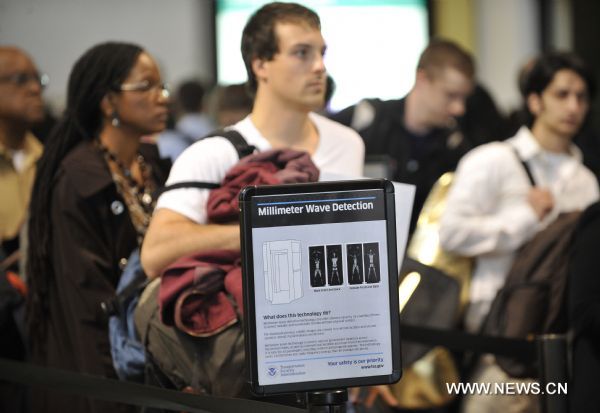Asia-Pacific
Americans mostly support full-body scanning
(Xinhua)
Updated: 2010-11-24 15:06
 |
Large Medium Small |
|
 Passengers wait for security checks at the Ronald Reagan Washington National Airport outside Washington D.C., capital of the United States, Nov. 23, 2010. As the uproar around the new security measures at US airports gets intense, a new poll finds that Americans mostly support the full-body scanning but are divided on the intensive frisking. [Photo/Xinhua] |
WASHINGTON - As the uproar around the new security measures at US airports gets intense, a new poll finds that Americans mostly support the full-body scanning but are divided on the intensive frisking.
Sixty-eight percent of Americans put a higher priority on combating terrorism than protecting personal privacy, while 26 percent say it is more important for the federal government to avoid privacy intrusions, according to a Washington Post-ABC News poll released on Tuesday.
In accordance, 64 percent of those polled support the new full-body scanning, while 32 percent are opposed to it.
Air travelers at some airports have to pass through full-body scanners. Those who set off the scanners' alert or refuse the scanning are subject to intimate pat-downs.
Outraged by the new security measures, privacy advocators planned a boycott of full-body scanning on Wednesday, one of the busiest day in a year at the country's airports as the Thanksgiving holiday approaches.
In response to public opposition to the new measures, White House spokesman Robert Gibbs said on Monday that the administration seeks to "maximize the security and protection and minimize that invasiveness."
"Our charge is to do all that we can to protect those that travel, but also to do so in a way that's ... minimally invasive," he said. "That's a balance that we will continue to search for."





